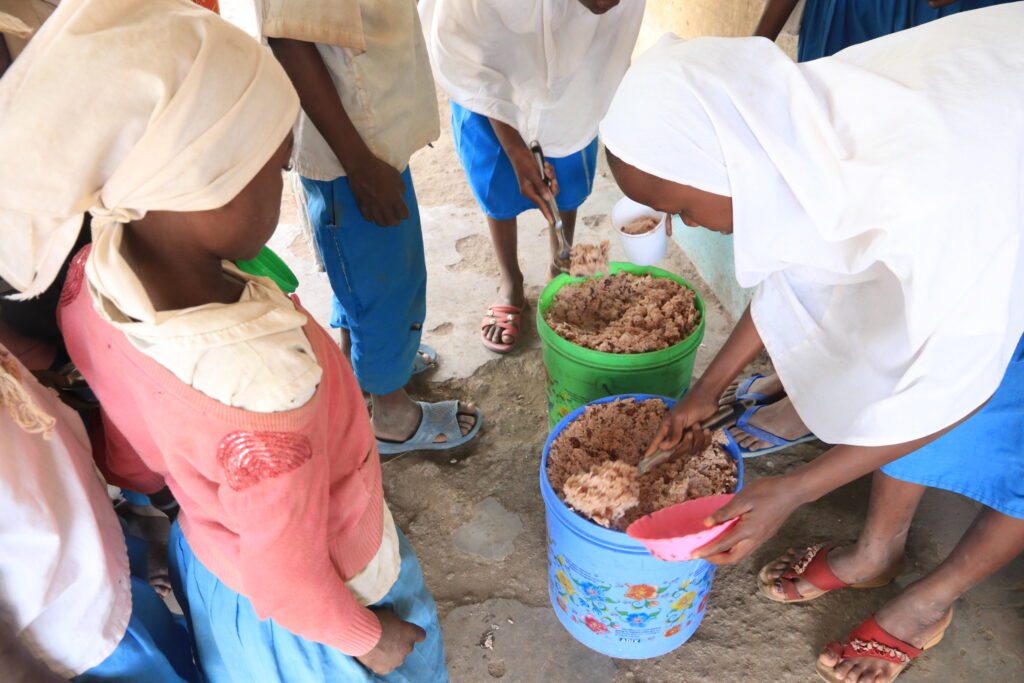Early School Closure Expose Children in Drought-Stricken Areas

School-going children in drought-hit counties who depend on school feeding programmes are likely to be hard hit following the government’s directive to close all basic education institutions in a bid to pave way for the upcoming general elections.
The pupils who hail from Tana River, Tharaka Nithi, Kilifi and Kwale counties respectively, are beneficiaries of feeding programmes that provide them with a daily meal of rice and beans, maize meal or porridge to encourage school attendance and concentration.
Without the provision of meals in school, the children are often pulled out of schools or drop out to assist their parents or guardians take over household chores as the parents go out in search of food and water for household use or for their starving livestock.
Recently, Plan International Kenya, a child rights organisation, issued an emergency red alert in the counties to prioritize response to the families in food crisis requiring urgent food supplies.
Plan International Kenya Emergency Response Manager Clement Chesire said the organisation donated food items in select schools to curb the increasing rates of absenteeism due to hunger crisis.
“After our field visits to various schools and communities in Tharaka Nithi, Tana River, Kilifi and Kwale counties, we identified the need to provide a daily mid-day meal to keep the children in schools as many could only afford one meal a day of black tea and ugali back home. The food supplies consist of maize, beans, rice, flour, vegetable oil and salt among other food items,” said Chesire.
A visit to Bondeni Primary School in Hola, Tana River at 12p.m., pupils’ queue outside the school’s kitchen to be a served a plate of rice and beans. Initially, pupils are sent home during lunch hour and return back to school for the afternoon classes.
Bondeni Primary Headteacher Mr. Shuweni Ali says some pupils are unable to return back to school for the afternoon classes due to challenges of lack of food at home.
“Their parents have no stable income to afford at least three meals a day. The child may be too tired to walk back to school on an empty stomach. But with the school feeding programmes, there is reduced absenteeism and improved performance,” said Ali.

One of the National School Meals and Nutrition Strategic objectives is to promote partnerships and multi-sectoral coordination for complementary support and effective implementation of the school meals and nutrition programme.
Over 1.1 million younger children below 5 years have also been hard hit, with malnutrition rates increasing. Expectant and lactating mothers are also affected by the food insecurity hardships.
Through its integrated management to address acute malnutrition, Plan International Kenya is working with county health and nutrition professionals to provide ready to use therapeutic food and protection rations to households with malnourished children.
While drought crisis is rife, access to water for personal hygiene is also a challenge, affecting adolescent girls who end up being married off or taken advantage of by older men.
With reduced parental care and presence who prioritize search for food and water for their families, girls compromise to help their families and buy menstrual hygiene kits initially provided by government and other stakeholders.





